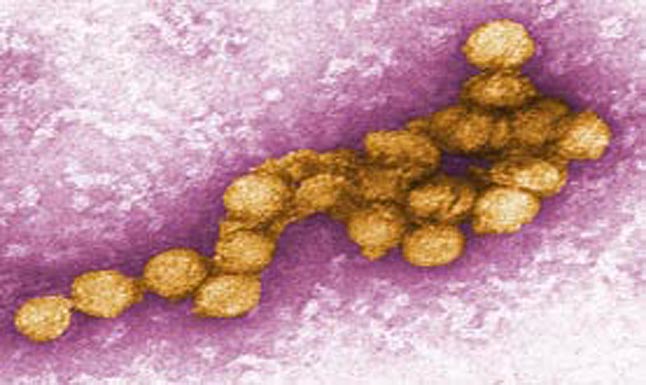
As temperatures rise so does the risk of West Nile virus. The mosquito species most likely to carry the virus is more active and more likely to spread the virus towards the end of July and into August, says the Interior Health Authority.
West Nile virus is a disease that is spread from infected corvid birds (crows, ravens, magpies, and jays) to humans through mosquito bites. It was first detected in B.C. in the South Okanagan during the summer of 2009. To date there have been four cases acquired in BC – all in the Okanagan. Last year, the Okanagan reported one human West Nile virus case while several parts of the Canada and the US reported significant increases in West Nile virus activity.
The IHA said in a statement released on Monday, July 14, that although 80 per cent of people infected with West Nile virus will not get sick, about 20 per cent of people will have mild to moderate illness that starts three to 14 days after being infected.
Symptoms of West Nile virus may include fever, headache, body aches, fatigue, swollen lymph glands, and sometimes a rash on the body. These symptoms generally last about one week, but they can last much longer. Less than one per cent of people infected with the West Nile virus can experience more serious illnesses and in very rare cases West Nile virus can result in death.
“We’d like to remind people to continue to take steps both here at home and when travelling to avoid mosquito bites,” Dr. Lizette Elumir, resident public health physician with Interior Health, said in the statement.
“While the risk of becoming seriously ill from West Nile virus infection is low for many, it can be higher for the elderly and those with compromised immune systems. It is important to remember there are things everyone can do to reduce the risk of infection.”
Any activity that prevents mosquitoes from biting or breeding can help to reduce the risk of becoming infected with West Nile virus. Dr. Elumiroffers the following tips:
- Avoid outdoor activities at dusk and dawn. This is the time of day the mosquitoes that can carry West Nile virus are most active;
- Wear protective clothing. If you are in an area with lots of mosquitoes, wear loose fitting, light coloured, full-length pants and a long-sleeved shirt;
- Use mosquito repellent. Apply mosquito repellent to exposed skin. Check the product label for instructions on proper use. Repellents containing DEET are safe for those over six months of age when used according to the directions on the label. DEET-free products are available, but may not provide long-lasting protection;
- Prevent mosquito breeding around your home. Anything that holds water can be a mosquito breeding area. Identify and remove potential breeding areas on your property – empty saucers under flowerpots; change water in bird baths twice a week; unclog rain gutters; drain tarps, tires, and other debris where water may collect; and install a pump in ornamental ponds or stock them with fish. Stagnant backyard pools can be a big source of mosquitoes and should be maintained regularly to prevent mosquito growth; and
- Install screens on windows. Screens will help prevent mosquitoes from coming indoors.
Interior Health works closely with the BC Centre for Disease Control (BCCDC) and Canadian Blood Services to monitor West Nile virus activity. Surveillance includes screening the blood supply, and reporting human, animal and bird cases. Members of the public can help with surveillance by reporting dead corvid birds using BCCDC’s Dead Bird Report Form (http://westnile.bccdc.org/). West Nile virus surveillance reports will be posted on the BCCDC website.



